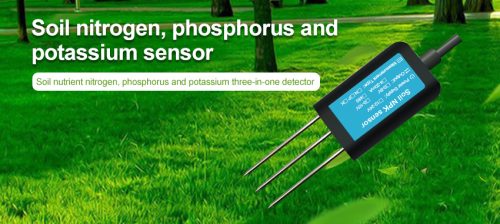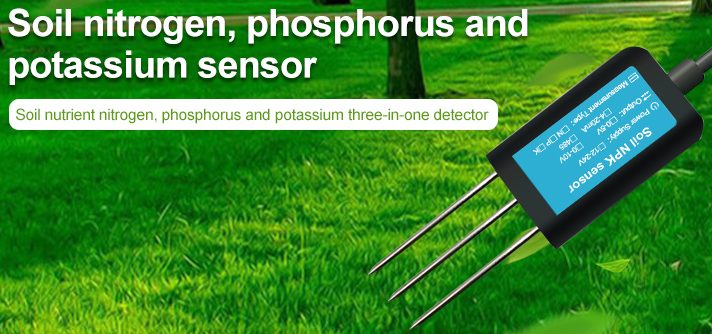Crop nutrient management is an important aspect of modern agriculture, and technological advances have brought about soil NPK sensor. Nutrient management directly affects crop yield and quality. However, it provides real-time data on key nutrients – nitrogen (N), phosphorus (P) and potassium (K). The benefits and applications of soil nitrogen, phosphorus and potassium sensors in enhancing crop nutrient management were discussed in this paper.

Benefits of the Soil NPK Sensors
Real-time nutrient monitoring: The Soil NPK Sensor provides instant feedback on the nutrient status of the soil. This allows farmers to make informed decisions about fertilization, ensuring optimal nutrient levels for crop growth. Real-time monitoring also enables quick adjustments to fertilizer application, preventing over or under-application.
Precision farming: With the Soil NPK Sensors, farmers can move away from generalized fertilization practices and adopt precision farming techniques. By targeting specific areas with nutrient deficiencies, farmers can reduce fertilizer waste and minimize environmental impact.
Cost-effective: Traditional soil testing involves labor-intensive processes and time-consuming laboratory analysis. In contrast, the Soil NPK Sensor offers on-site and immediate results, eliminating the need for third-party testing. This saves both time and money for farmers while maintaining accurate nutrient data.
Application of the Soil NPK Sensor:
Nutrient management planning: Soil NPK Sensors provides valuable data that helps farmers create customized nutrient management plans for their crops. By understanding the nutrient requirements and soil conditions, farmers can optimize fertilizer application timings and quantities.
Irrigation management: Proper nutrient management is closely linked to irrigation practices. The Soil NPK Sensor can assist farmers in determining nutrient leaching and runoff risks associated with irrigation. This information helps them adjust irrigation schedules and amounts to retain nutrients in the root zone, minimizing wastage.
Crop health monitoring: Nutrient deficiencies or excesses can significantly impact crop health. By using the Soil NPK Sensor, farmers can proactively identify and address nutrient imbalances, preventing stunted growth, discoloration, or disease susceptibility in crops. Timely intervention allows for remedial actions to be taken before irreversible damage occurs.
Conclusion:
The Soil NPK Sensors offers numerous advantages in enhancing crop nutrient management. Real-time nutrient monitoring, precision farming, and cost-effectiveness are key benefits that contribute to efficient fertilizer application, reduced environmental impact, and improved crop health. The applications of the Soil NPK Sensors extend to nutrient management planning, irrigation management, and crop health monitoring, providing farmers with valuable insights to make informed decisions. As technology continues to advance, the Soil NPK Sensor holds great potential to revolutionize crop nutrient management and contribute to sustainable agricultural practices.
